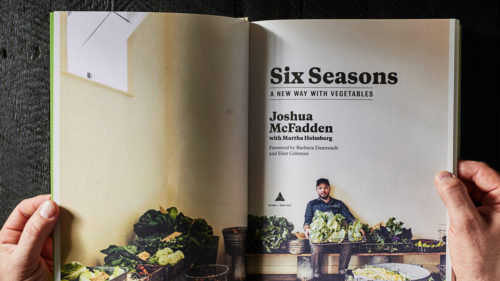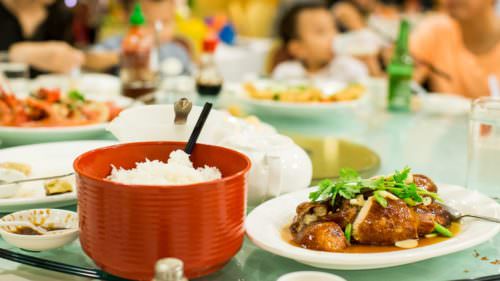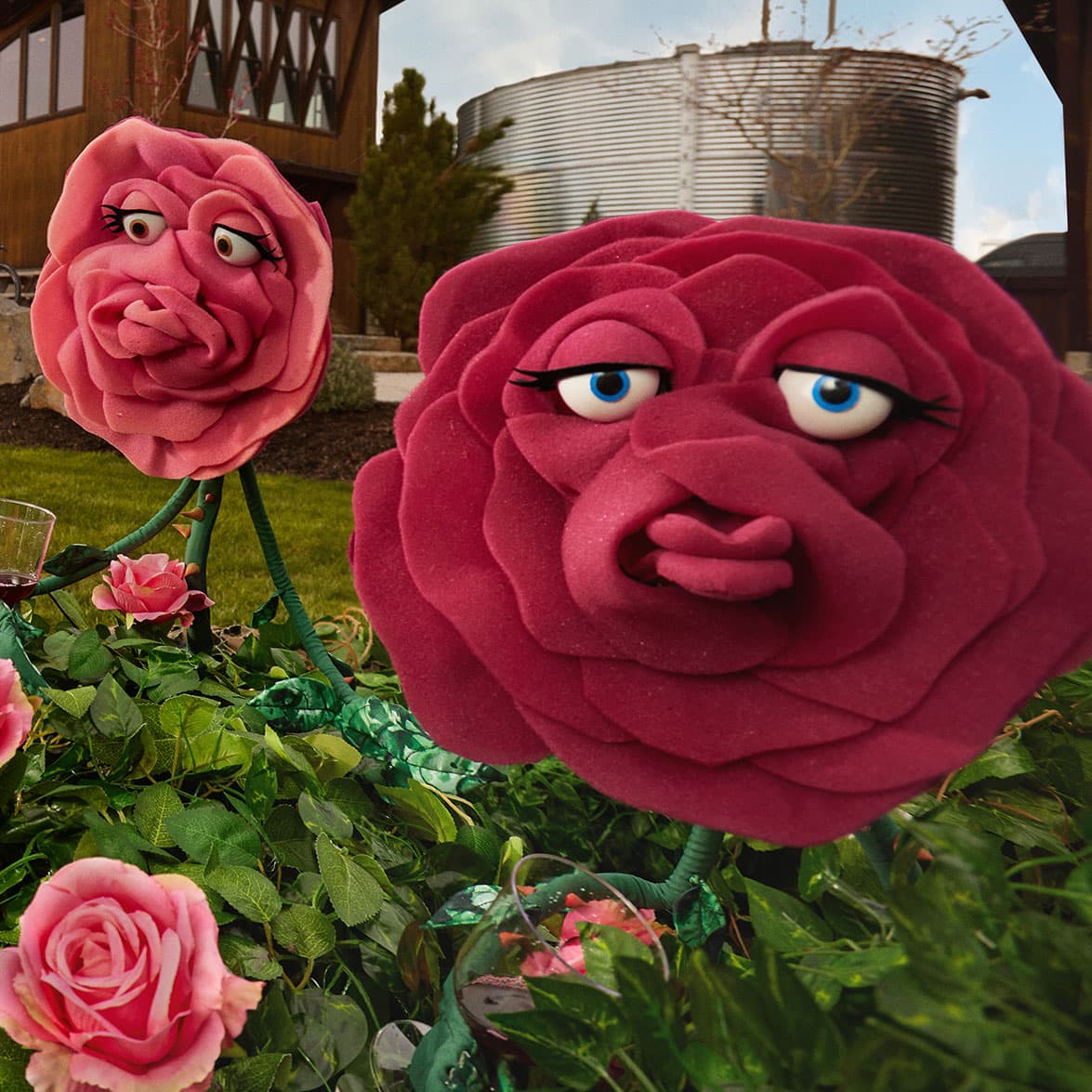For most people who grew up in the United States, the idea of Russian food usually conjures images of hardscrabble, Cold War-era subsistence — nothing but beets and cabbage, long bread lines and markets with empty shelves. And due to nearly 50 years of Iron Curtain policies that kept Soviets in and Westerners out, most of us had never had the opportunity to experience the culture firsthand and see Russian food any differently.
But all that changed in 2014, when curious diners in Portland came face-to-face with the menu at Kachka in Southeast Portland. Lured by the restaurant’s fun, youthful vibe, they came for the infused vodka flights; stayed for the tender, deeply savory pelmeni dumplings; fell hard for Herring Under a Fur Coat (a multilayered and incredibly delicious dish of pickled fish, cold beets and hard-cooked eggs); and returned for the rotating skewers of grilled meats, cheese-filled Georgian breads and pillowy blini pancakes topped with briny caviar. All of a sudden, happy hour became synonymous with zakuski — the stunning parade of hot and cold hors d’oeuvres no Russian gathering is ever without.
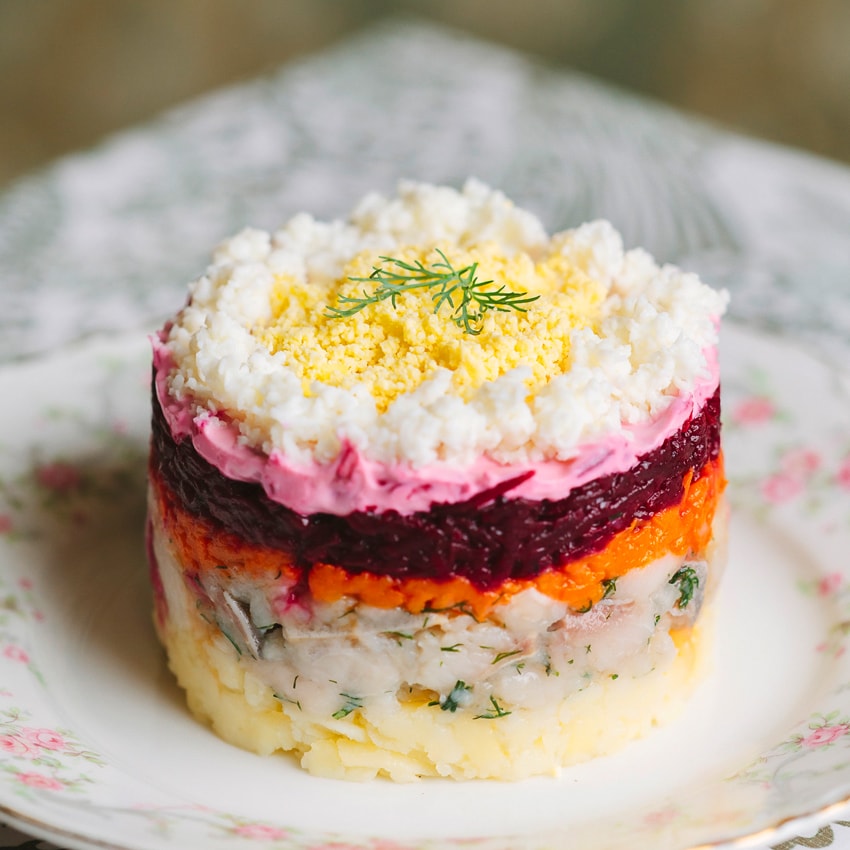
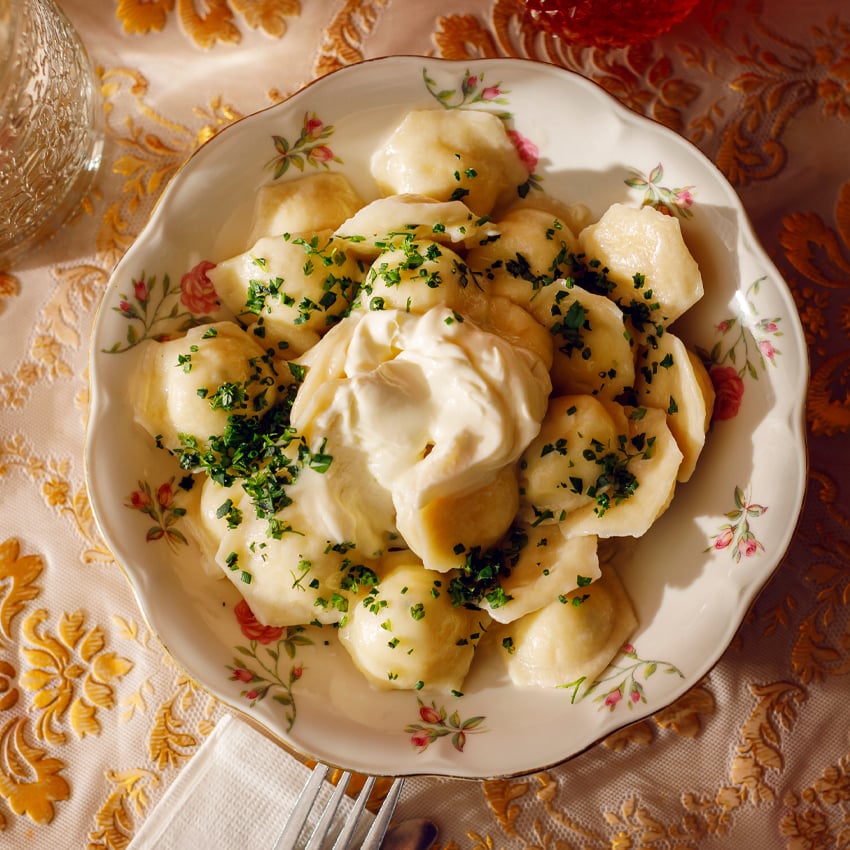
“Most Americans have no idea what this food is about and have been conditioned to think it’s drab or gross,” says chef and owner Bonnie Frumkin Morales, whose parents immigrated from Belarus to Chicago in 1980. “The food that I grew up eating was not being honored in the culinary world at all, and it deserves every ounce of respect that Japanese or French food gets. So we opened Kachka to change people’s minds and create new associations with this cuisine.”
To that end, she has succeeded in spades. A year after Morales and her husband, Israel, opened Kachka, it was named one of Eater’s 38 Essential American Restaurants, one of GQ’s Most Outstanding Restaurants and one of Bon Appétit’s Best New Restaurants, and it was a semifinalist for the James Beard Award for Best New Restaurant. With accolades pouring in from all over the country for this tiny restaurant in Portland, it seemed the food world was finally taking notice of Slavic cuisine.
But Kachka was anything but a sure bet. For many Portlanders, the idea of a Russian restaurant was novel at best, even though the area is home to more than 50,000 immigrants from the former Soviet Union. In fact, Russian is the third most-spoken language in Oregon behind English and Spanish.
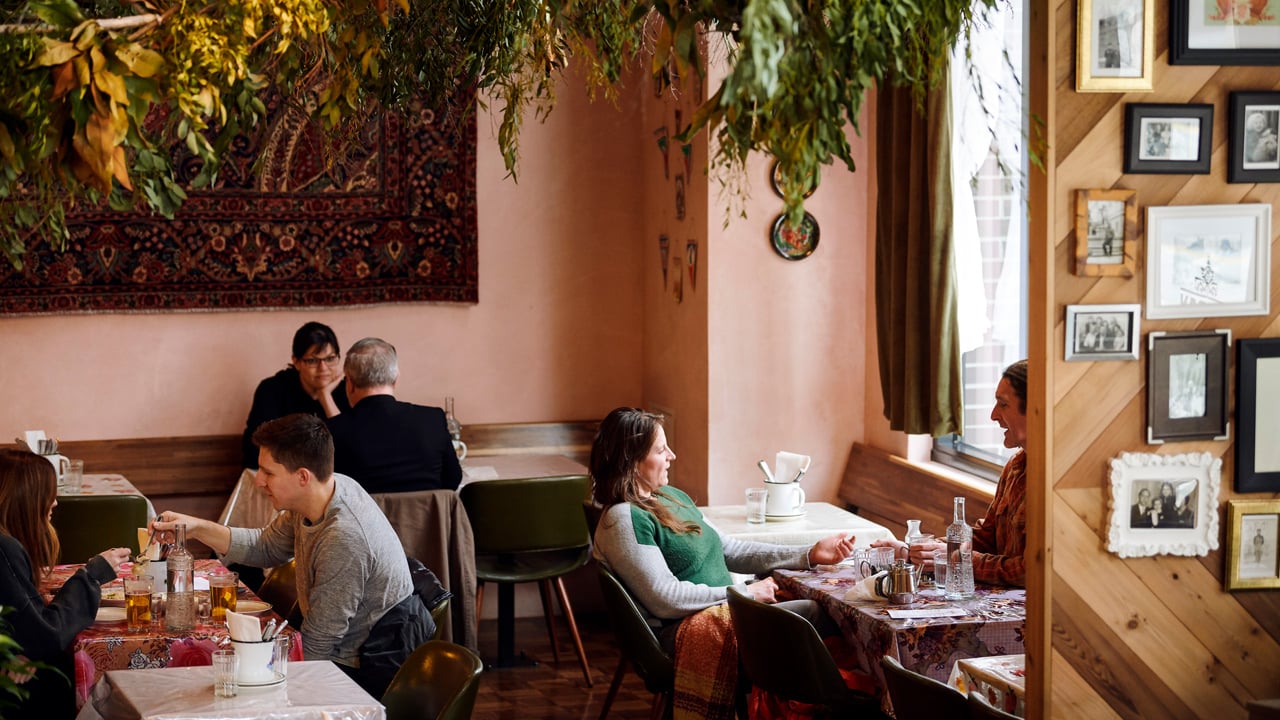
What’s Behind Oregon’s Russian Roots?
According to the Census Bureau, no other state has as high a ratio of Russian speakers. Most of the immigrants came in waves beginning in the late 1980s, as refugees escaping religious persecution. While most Russian Jews ended up on the East Coast, many Evangelical Christians settled in Oregon.
The Immigrant & Refugee Community of Oregon estimates that 85% of the Portland area’s Russian-speaking population is Russian Pentecostal or Baptist. Their pathway was paved and hosted by the Old Believers — a group of about 1,000 Russian Orthodox Christians who immigrated from Russia in the 1960s and settled in the Woodburn area’s farmland.
But the Slavic Christian community traditionally keeps to itself, so even though Oregon’s population is rich with Slavic immigrants, opportunities for outsiders to experience the culture generally fly under the radar. And it doesn’t help that decades of political turmoil and acrimony between the United States and Russia continue to take a toll on many Americans’ perceptions even today.
“Every time I turn on NPR, I hear about Russia and Ukraine,” says Morales. “It creates a negative feeling. When I say I serve Russian and Ukrainian cuisine, a lot of people immediately have negative political associations, even just tucked in the back of their mind. It’s been hard for some of them to overcome the prejudice and give us a try.”
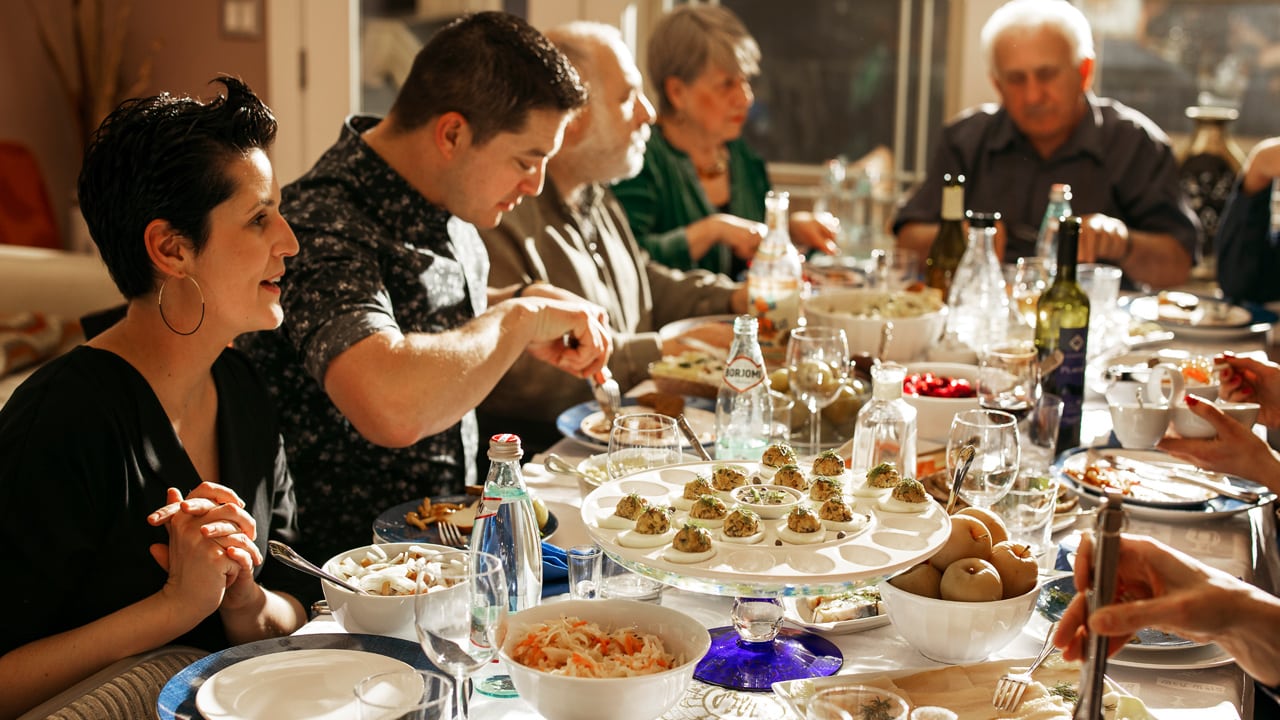
Breaking Down Barriers With Cuisine
Opening Kachka took faith, determination, intelligence, and a bit of luck — an echo of the things that kept her grandmother, Rakhil Altshuler, alive during World War II. On the run after crawling beneath the barbed-wire fence encircling the Jewish ghetto in Bobr, Belarus, and having just buried her three-month-old baby in the forest with her bare hands, she was trying to pass as Ukrainian instead of Jewish when she was stopped by a Nazi-appointed town warden. That’s when he asked her a question that could change her life — or end it.
“If you’re from Ukraine, how do you say ‘duck’ in Ukrainian?” he asked.
Altshuler gathered herself up and bet her entire life on the chance that maybe the word was the same in Yiddish as it was in Ukrainian.
“Kachka,” she replied.
He let her go.
Like a magic word, “kachka” had granted Altshuler a new beginning back in 1941, and two generations later it worked its magic for her granddaughter, too, as she took what would be a very successful gamble that the cuisines of the former Soviet Union would find an audience among the food-obsessed diners of the Pacific Northwest.
“Portland was the only place in the U.S. that we felt comfortable even trying to do this,” says Morales. “Portlanders are so much more willing and open to trying new things. Not to mention the produce and artisan products in Oregon are just incomparable.”
Her goal then, as now, is simple: “I just want to get people to be more familiar with this cuisine. I want it to have a bigger piece of the pie in people’s brains, and I hope it changes people’s perceptions.”
By all accounts, it’s working. Her cookbook, “Kachka: A Return to Russian Cooking,” was published in the fall of 2017 and promptly earned scads of ink from the likes of Saveur magazine and the New York Times, beating out every other top title to win Food52’s 2018 Piglet Award. Judging by Amazon’s “Frequently Bought Together” items, the book’s popularity is also responsible for soaring sales in aluminum pelmeni (dumpling) makers. “I wonder how much we are responsible for the uptick in sales of this random device,” she laughs.
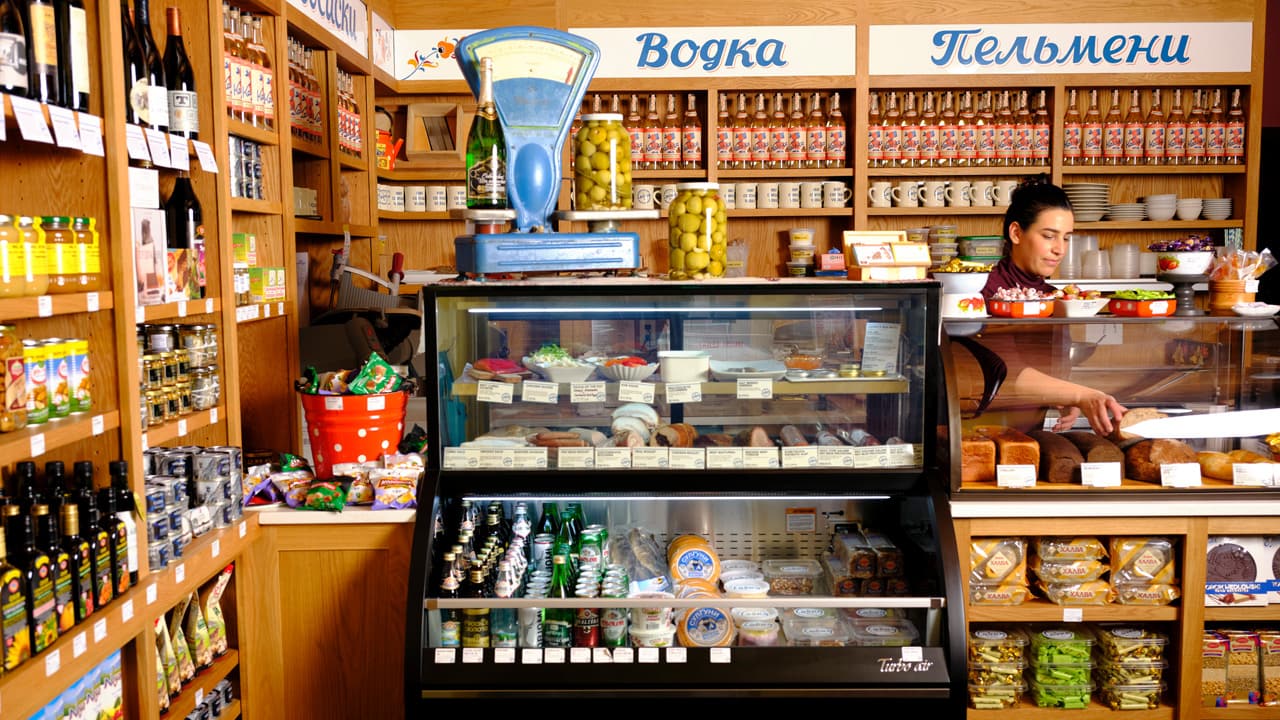
The Rise of Russian Food in Portland
Clearly Russian food is catching on in Portland and beyond. Soon after Kachka’s opening, celebrated Portland chef Vitaly Paley, a native Belarusian just like Morales’ grandmother, launched his lavish, multicourse DaNet pop-up (currently on hiatus) to share the dishes of his homeland. Since 2018, newcomers have included the Georgian food cart-turned brick and mortar Kargi Gogo in the Alberta District; Pelmeni Pelmeni‘s Ukranian and Russian-focused food cart on Southeast Hawthorne; and Delores, a restaurant rooted in Polish heritage, in inner Southeast Portland.
In 2018 Morales and her husband moved Kachka to a larger space and expanded the menu, then transformed the original space into Kachinka bar (temporarily closed due to water damage). And at the tail end of 2019, the duo opened Kachka Lavka, a takeaway deli and market upstairs at Kachka, giving people a chance to bring the foods and flavors of Slavic cuisine into their home.
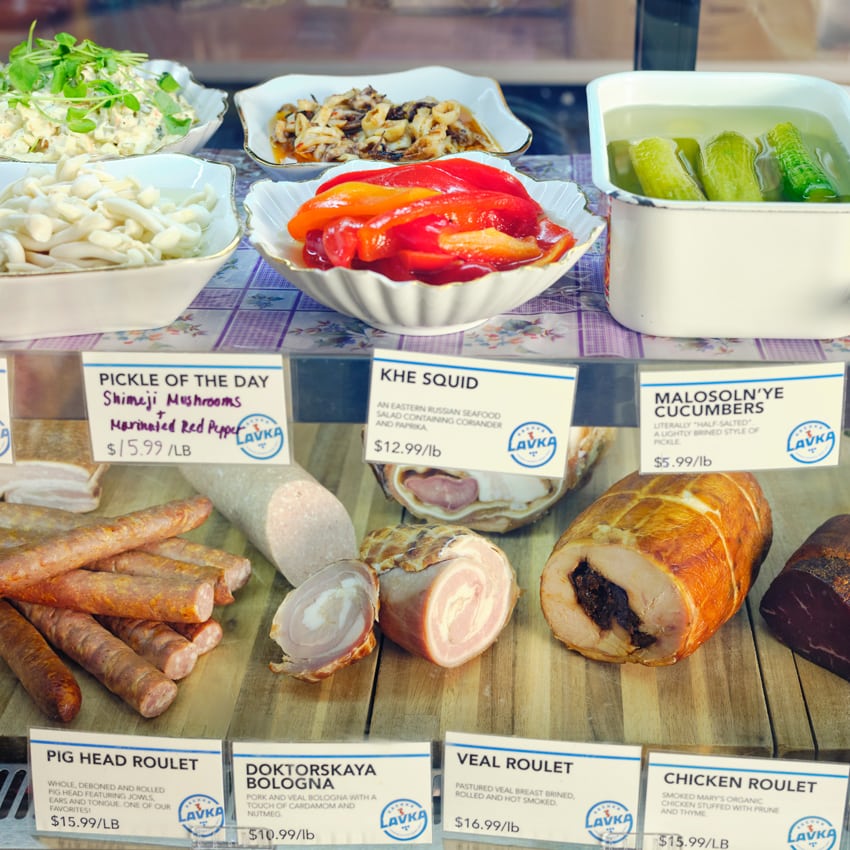
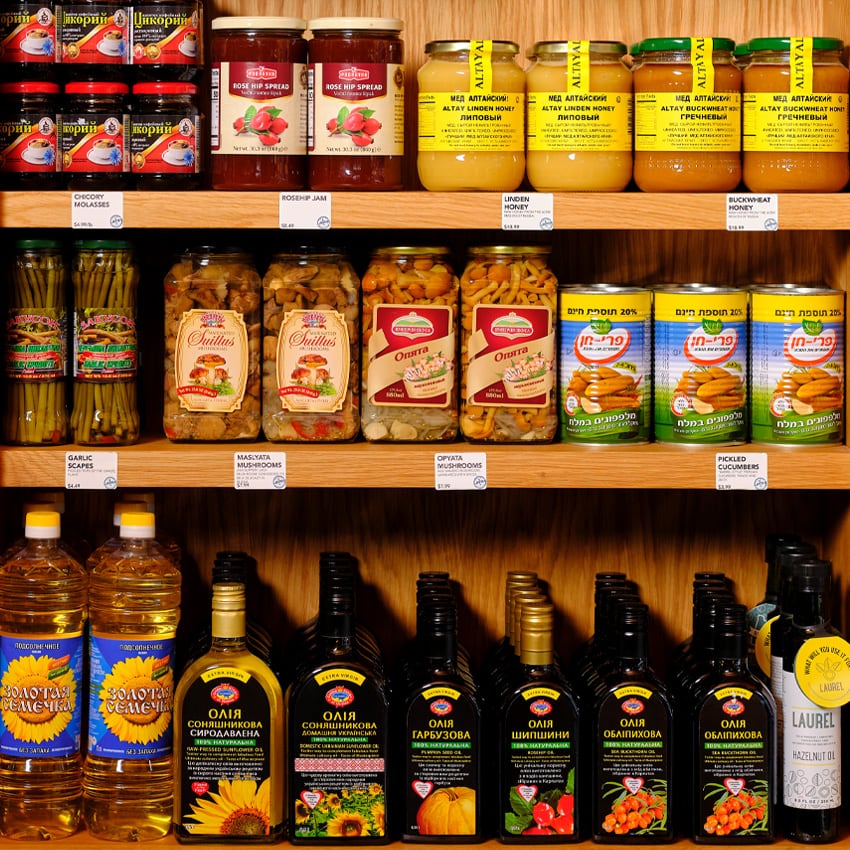
“It’s all about sharing with Portland the most unique and special things,” says Morales. Instead of aiming to stock everything under the sun, the shop specializes in a curated selection of premium, high-quality items usually too pricey for most of the city’s Russian markets to carry. “There isn’t as much economic diversity in the Slavic population here, so price is everything. But we’re already paying for the space, so it doesn’t have to be the cheapest version. We’re being really selective about what we’re selling.”
That means things like pinecone jam made from tender cones harvested only in the spring; glistening jars of plump, smoked sprats (like sardines); traditional rooster-shaped lollipops made with all-natural ingredients by Gresham-based Ukrainian immigrant Sergey Choglo; and housemade specialties like pelmeni as well as charcuterie, mustards and crème brulee plombir (ice cream) scooped into imported Russian ice cream cones. It’s everything you need for a Russian feast, and it’s all available smack in the heart of Portland.
“I want to give people the tools to do it themselves,” Morales says, “because cooking this food at home is just as much of a win as coming in.”
Where to Go for Slavic Theater, Music, Dance and Community in Oregon
The city’s Slavic Empowerment Team names the second week of January Slavic Heritage Week, and a festival in September doubles as a fundraiser for a new Slavic Center.
Scarlet Sails Theater performs traditional Slavic plays for children. Students at Sultanov Russian Ballet Academy, founded by Artur Sultanov — principal dancer with the Oregon Ballet Theater and a St. Petersburg, Russia, native — perform ballets each spring. The Cappella Romana vocal ensemble performs Greek and Russian Orthodox choral works.
The Juliana & PAVA vocal ensemble performs ancient Russian folk songs in traditional costume. The Portland Khabarovsk Sister City Association offers dinners, get-togethers and events throughout the year to encourage cultural exchange. And the band Chervona performs high-energy Romani, Russian, Ukrainian, Klezmer and Balkan music at gigs around town.
More Slavic Food in Oregon:
Chef Vitaly Paley’s Russian Tea Experience is offered every weekend at the Heathman Hotel in downtown Portland. A few blocks away at his restaurant Rosa Rosa, you can try Georgian specialties like pork chakapuli, a stew with sour plums.
Babushka Russian Deli and Bakery in Wood Village is known for its cakes and pastries, while Woodburn is home to Mama’s Russian Food, serving up piroshki (filled dumplings with a bread-like wrapper), pelmeni and cabbage rolls.
For deli items and Russian ingredients in East Portland, try Imperial European Market, Roman Russian Market, Good Neighbor Market, and Russian Elegance Food, which is known for its breads.
